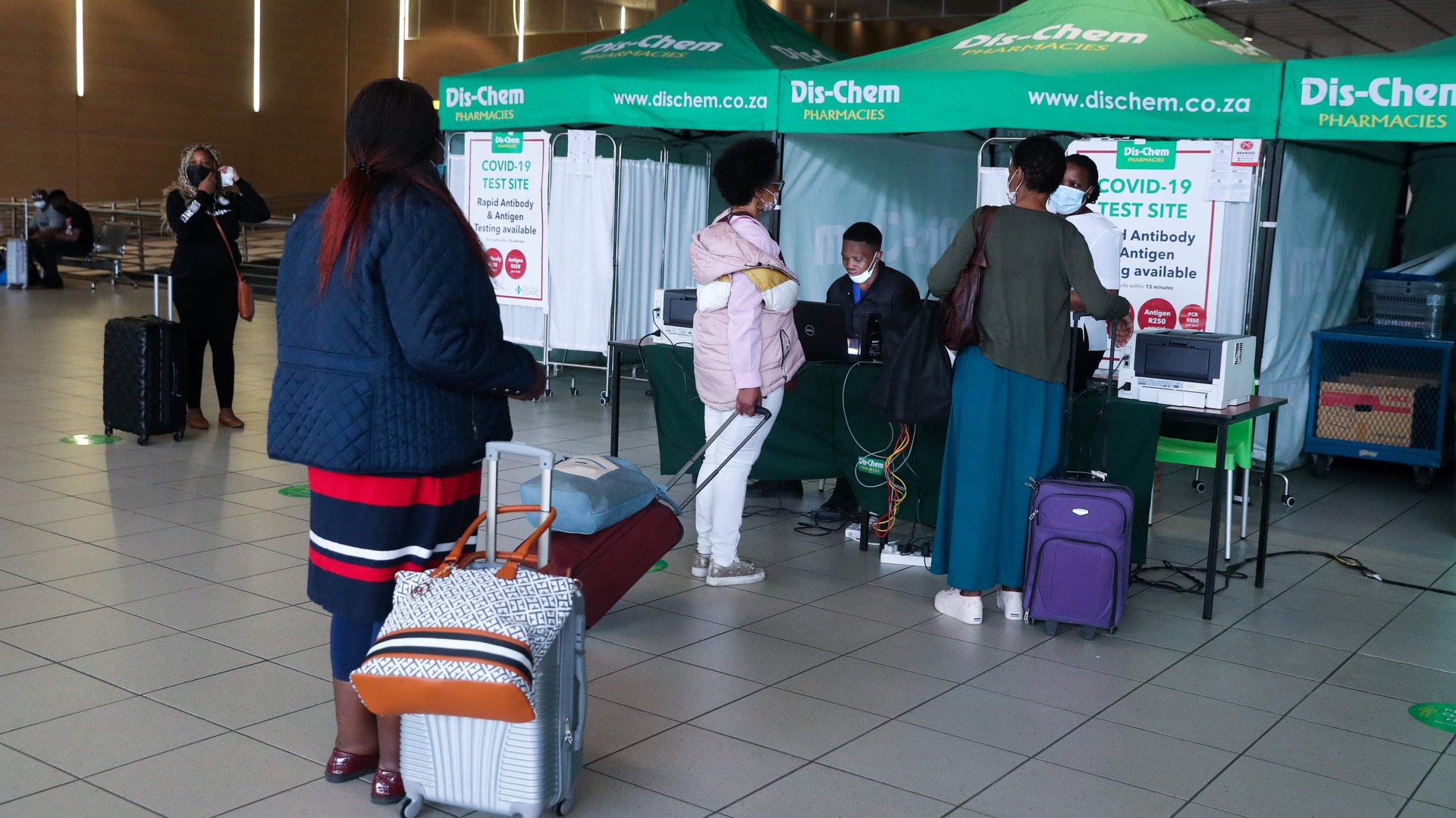Omicron travel bans penalize South Africa for being transparent
Countries across the world are rushing to put African nations on travel red lists. And that is bad news for global health.


Countries across the world are rushing to put African nations on travel red lists. And that is bad news for global health.
South Africa’s prompt efforts to sequence and identify the new omicron variant have triggered a worldwide response to contain any new outbreaks, which scientists say must be lauded.
“The surveillance is so good in South Africa and other nearby countries that they found this (new variant), understood it was a problem and told the world very fast about it,” Jeffrey Barrett, director of covid-19 genetics at the UK’s Wellcome Sanger Institute, told AP news. “We may be at an earlier point with this new variant so there may still be time to do something about it.”
The omicron variant of covid-19, first detected in Botswana, became a topic of global conversation once South Africa raised the alarm. Scientists in the country were quick to sequence samples from areas of the current outbreak, including those from the capital, Johannesburg, and the Gauteng province.
Within two days of South Africa releasing data on the B.1.1.529 variant on Nov. 24, the World Health Organization (WHO) named it omicron and classified it as a variant of concern. This is the fastest the global body has upgraded a covid-19 variant from a variant under monitoring to a variant of concern. It also now believes that omicron could fuel future surges with severe consequences.
Global health experts believe this is both a sign that the mutations on this variant are worrying and that South Africa’s prompt data sharing allowed the WHO to make a timely assessment.
By contrast, the delta variant, which wreaked havoc in India in April and May, was assigned the “variant of concern” tag on May 11, after infections had dramatically surged, and crossed 400,000 new cases per day in the country. It was first isolated and detected in India only in October 2020.
During its delta wave, the Indian government had strongly objected to the mutant being called the “Indian variant,” shortly before the WHO gave Greek names to the variants.
There are also several theories that suggest that China withheld information on the origins of covid-19 and that a lack of transparency delayed the efforts to contain the pandemic.
Punishing data transparency
But despite prompt data sharing, several African nations, including South Africa, now face a global shut-out, in what WHO has called a “knee-jerk” reaction. Countries like the US and UK have banned travelers from up to six countries of that continent.
Such bans have been announced even though the severity of the disease caused by omicron, its impact on vaccine-induced immunity, and its transmissibility remain unknown at the moment. “They’ve (South African officials) done the world a service and we must help them, not penalize them for this,” Barrett told AP news.
Some reports from South African provinces even suggest that omicron could lead to only mild disease in most cases.
South Africa’s department of international relations and cooperation has also strongly objected to this global isolation. “This latest round of travel bans is akin to punishing South Africa for its advanced genomic sequencing and the ability to detect new variants quicker. Excellent science should be applauded and not punished,” it said in a statement on Nov. 29.
South African president Cyril Ramaphosa also said today that he was “deeply disappointed” by the travel bans.
The medical community globally has said imposing such sanctions would send the wrong message to countries forthcoming with genomic data.